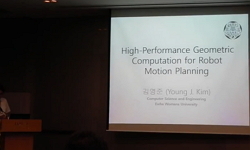The purpose of this research is to look into the effects of organizational culture and training and development on work discipline and performance. The data for this study was directly obtained from employees of a municipal water corporation in Medan,...
http://chineseinput.net/에서 pinyin(병음)방식으로 중국어를 변환할 수 있습니다.
변환된 중국어를 복사하여 사용하시면 됩니다.
- 中文 을 입력하시려면 zhongwen을 입력하시고 space를누르시면됩니다.
- 北京 을 입력하시려면 beijing을 입력하시고 space를 누르시면 됩니다.
https://www.riss.kr/link?id=A108007248
- 저자
- 발행기관
- 학술지명
- 권호사항
-
발행연도
2022
-
작성언어
-
- 주제어
-
KDC
320
-
등재정보
SCOPUS
-
자료형태
학술저널
-
수록면
273-281(9쪽)
- DOI식별코드
- 제공처
-
0
상세조회 -
0
다운로드
부가정보
다국어 초록 (Multilingual Abstract)
The purpose of this research is to look into the effects of organizational culture and training and development on work discipline and performance. The data for this study was directly obtained from employees of a municipal water corporation in Medan, Indonesia, with a total of 204 participants. Partial Least Square Structural Equation Modeling (PLS-SEM) was applied for data analysis. The results showed that organizational culture and training and development positively and significantly affect performance. However, organizational culture and training & development positively affect employees’ work discipline, albeit insignificantly. The findings of this study suggest that organizational culture and training and development play a critical role in shaping work discipline and performance in organizations in Indonesian settings. Therefore, the finding of this research engage all leaders in the organization to conduct training and development more intensively. Although it seems to have costly, this will have a good impact on the organization in the long run. Furthermore, the authors also suggest the creation of a solid organizational culture for every organization to foster excellent performance. However, each organization should choose its own acceptable organizational culture because it is possible that the organizational culture that works in one context does not work in another.
목차 (Table of Contents)
- 1. Introduction 2. Literature Review 3. Research Methods and Materials 4. Results 5. Discussion 6. Conclusion
- 1. Introduction 2. Literature Review 3. Research Methods and Materials 4. Results 5. Discussion 6. Conclusion
동일학술지(권/호) 다른 논문
-
- 한국유통과학회
- Duy Thuc NGUYEN
- 2022
- SCOPUS
-
The Impact of Capital Account Openness on Income Inequality: Empirical Evidence from Asia
- 한국유통과학회
- Imran ULLAH
- 2022
- SCOPUS
-
A Study on Elderly Entrepreneurial Intention in the Hospitality and Tourism Industry in China
- 한국유통과학회
- Lili ZHANG
- 2022
- SCOPUS
-
- 한국유통과학회
- Nuttanai ANUNTARUMPORN
- 2022
- SCOPUS





 ScienceON
ScienceON 스콜라
스콜라




